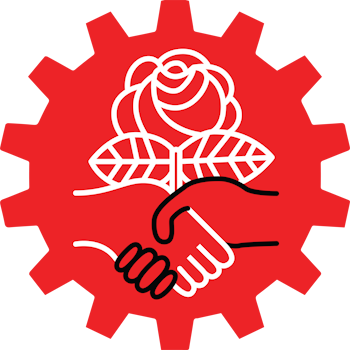Recommended Reading List
New members come into DSA from all walks of life, and are often hungry for information on how to organize, think, and argue like a socialist. The DSA Cleveland Political Education Committee has put together the following short list of readings for new members. The list covers fundamentals of organizing, principles and key arguments for socialism, and some deep dives into topics DSA Cleveland is currently organizing around.
Various Authors, ABCs of Socialism
[Link to the digital copy]. This series of essays published by Jacobin covers basic arguments and myths you will encounter as a socialist living in a capitalist society. It does so in concrete understandable terms, but also with rigor.
Jane McAlevey, No Shortcuts (2016) (first 50 pp.)
In the first fifty pages of this labor history case study / organizing manuscript, Jane breaks down our bottom-up theory of power and presents a blueprint for making real structural change from below.
Karl Marx, The Communist Manifesto (1848)
[Link to the digital copy]. This is a fundamental and pretty short text that sets the context for the entire internationalist socialist project. It’s basically required reading.
David J. Madden, Peter Marcuse, In Defense of Housing: The Politics of Crisis (2016)
In Defense of Housing is a wealth of information, providing an overview of the history, political economy, and commodification of housing in capitalist countries through a socialist lens. It draws frequently on the works of Marx and, to an even greater extent, Engels. It later reflects on the nature of tenants movements and addresses why even the most successful popular tenants movements have historically been fleeting. Finally, Marcuse and Madden propose realistic actions that we as tenants can take in the immediate future. This text ties in superbly with our CHOP campaign.
Alex Vitale, The End of Policing (2017)
The End of Policing is a 2017 book by the American sociologist Alex S. Vitale. In it, Vitale argues for the eventual abolition of the police, to be replaced variously by decriminalization or with non-law enforcement approaches, depending on the crime.
Keeanga Yamhatta Taylor, From Black Lives Matter to Black Liberation
In this stirring and insightful analysis, activist and scholar Keeanga-Yamahtta Taylor surveys the historical and contemporary ravages of racism.
Ralph Miliband, Marxism and Politics
Neither Marx nor any of his successors sought to define an overall theory of the nature of their political views. Drawing on a wide range of material, the author has reconstructed the main elements of the political theory and actual politics which are specific to Marxism–Adapted from back cover.
Essays
Gracie Lyons, Constructive Criticism: A Handbook
Constructive Criticism is a wonderful example of the blending of valuable and powerful socialist theory with a practical, down-to-earth pragmatism.
EWOC, Unite And Win: The Workplace Organizing Handbook
This guide, based on the collective experience of organizers and workers in non-unionized workplaces, is a critical tool to help you and your coworkers organize for justice at work.
Unite and Win covers the core elements of organizing at work — developing an organizing committee, having organizing conversations, taking collective action, and inoculating yourselves against the boss’s inevitable response.
Nancy Fraser, Contradictions of Capital and Care
Are the exactions of financialized capitalism now serving to undermine its lifeworld? The ‘crisis of care’ is currently a major topic of public debate. Often linked to ideas of ‘time poverty’, ‘family-work balance’, and ‘social depletion’, it refers to the pressures from several directions that are currently squeezing a key set of social capacities: those available for birthing and raising children, caring for friends and family members, maintaining households and broader communities, and sustaining connections more generally
Olúfémi O. Táíwò, Being in the Room Privilege: Elite Capture and Epistemic Difference
The essay that inspired Elite Capture, the essay delves into the ways in which identity politics is used by elites and the ways in which cultural norms reinforce these ideas. Knowing that the bottom 44% of the world simply do not have access to the internet at all to even be thought of to be brought into the room in the first place, “it’s hard to imagine how we could do worse”.
